SPONSORS AND EXHIBITORS
Gold Sponsors
Bronze Sponsors
Copper Sponsors
July 12 - 16, 2026
Washington, D.C., United States
ISCB Flagship Event
Dec 10-13, 2025
Hong Kong, China
ISCB Official Event
December 6 - 8, 2025
Northeastern University, USA
Jan 3 - 7, 2026
Big Island, Hawai'i
April 21-22, 2026
Cambridge, UK
ISCB Official Event
May 26 - 29, 2026
Thessaloniki, Greece
May 27-29, 2026
Toronto, Ontario, Canada
ISCB Official Event
August 31 - September 4, 2026
Geneva, Switzerland
Bioinformatics Community Events
ISCB’s Annual Flagship Meeting
Support the society while achieving your marketing goals
Become a ISCB collaborative conference, learn more here
Regional, topical, worldwide - your platform to present science
dedicated to facilitating development for students and young researchers
The ISCB Affiliates program is designed to forge links between ISCB and regional non-profit membership groups, centers, institutes and networks that involve researchers from various institutions and/or organizations within a defined geographic region involved in the advancement of bioinformatics. Such groups have regular meetings either in person or online, and an organizing body in the form of a board of directors or steering committee. If you are interested in affiliating your regional membership group, center, institute or network with ISCB, please review these guidelines (.pdf) and send your exploratory questions to Diane E. Kovats, ISCB Chief Executive Officer (This email address is being protected from spambots. You need JavaScript enabled to view it.). For information about the Affilliates Committee click here.
Topically-focused collaborative communities
Connect with ISCB worldwide
Environmental Sustainability Effort
ISCB is committed to creating a safe, inclusive, and equal environment for everyone
Resource library for education and training materials
Search jobs, find talent
Science at the click of the mouse, recorded talks
High-quality research devoted to computer-assisted analysis of biological data
Latest research and publications
Certifying Quality in Computational Biology Education
Latest updates from ISCB
Highlighting Society events, programs, and achievements
Celebrating scientific achievement and innovation
Honoring our distinguished researchers
Recognizing contributions and achievements
Center for science, collaboration, and training

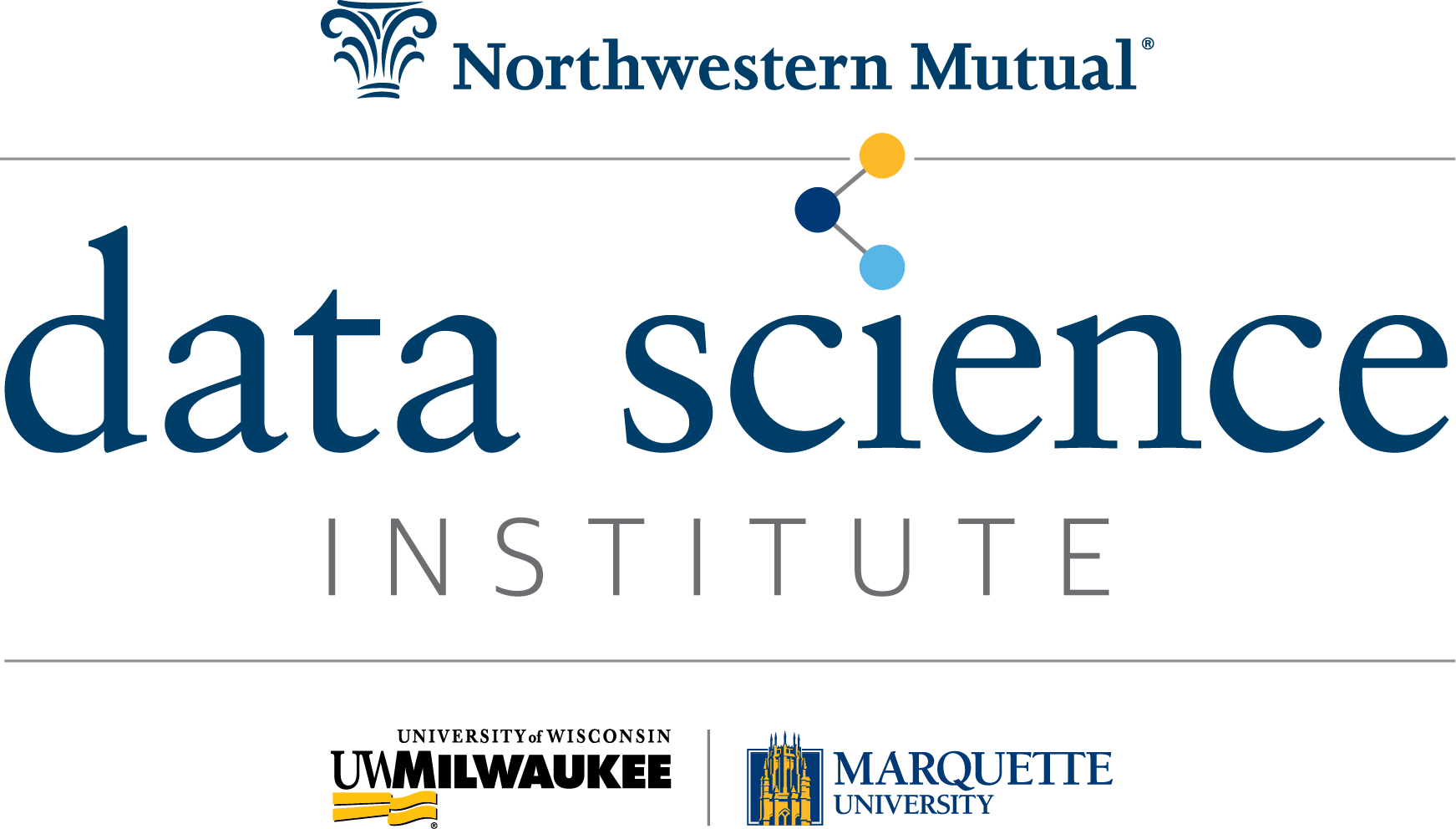
Copper Sponsors
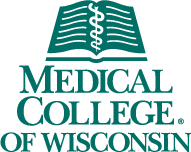
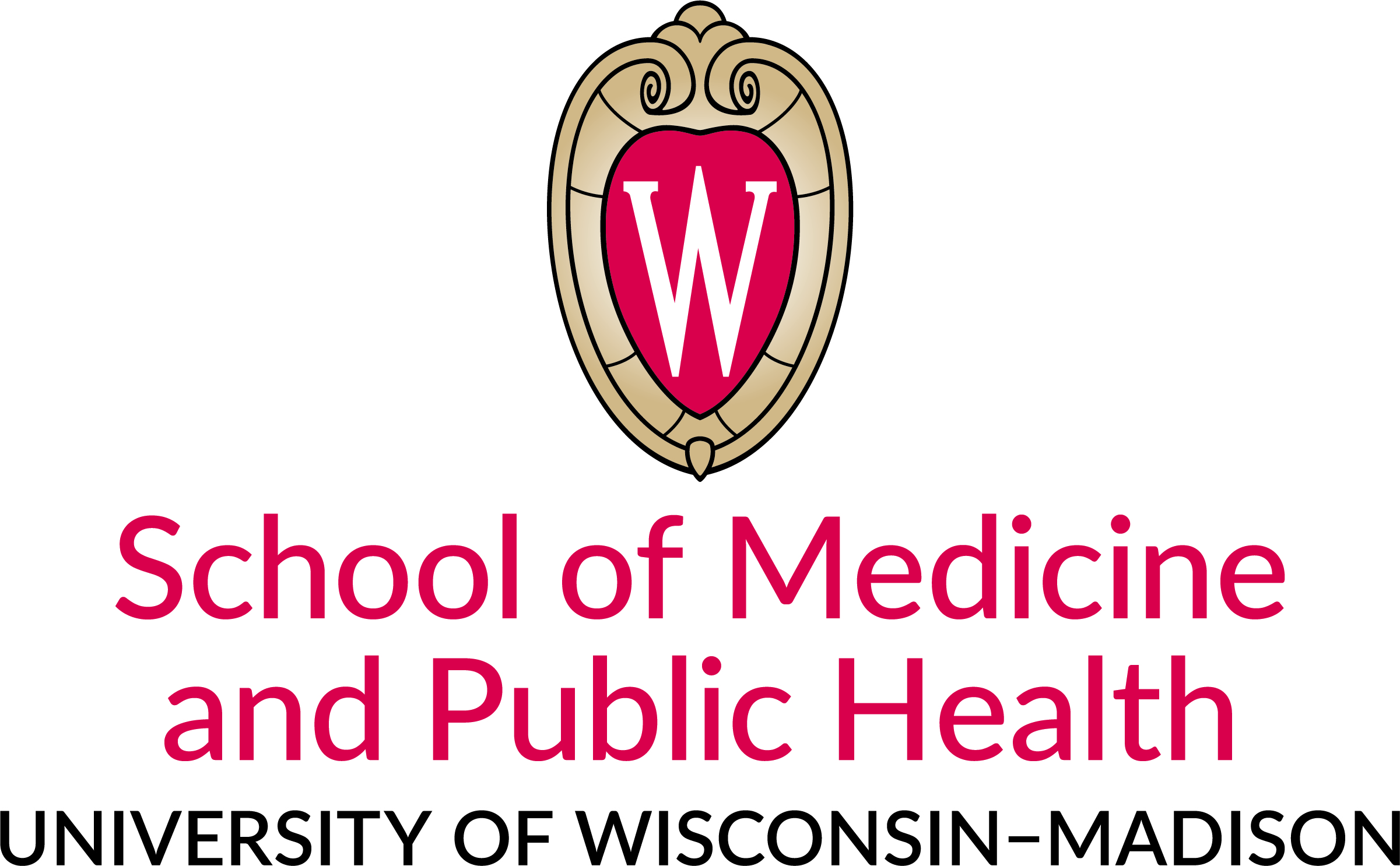
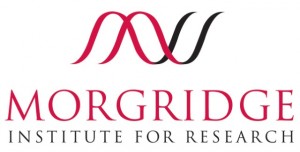
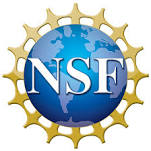
Closed.
Coming Soon.
No longer available.
The Great Lakes Bioinformatics Consortium is pleased to announce a call for Volunteer Student Support Staff for its 13th Great Lakes Bioinformatics Conference (an official conference of the International Society for Computational Biology) (GLBIO 2019), the conference will be held May 19-22, 2019 at the University of Wisconsin-Madison.
The conference provides an interdisciplinary forum for the discussion of research findings and methods, and development of long-term relationships and networking opportunities, for researchers within the region, as well as from around the world.
As a member of the Volunteer Student Support Staff, you will receive valuable first-hand experience at an academic association conference, a certificate of appreciation as well as a full refund on your registration once your obligations are complete. Please review the below volunteer requirements:
Only a small number of students will be selected to participate on this team. Apply today by completing the application online at https://goo.gl/forms/IUIZVA09CdCx2ebG3 by March 25, 2019.
Thank you,

Bel Hanson
GLBIO Conference Manager
International Society for Computational Biology (ISCB)
This email address is being protected from spambots. You need JavaScript enabled to view it.
(click to view pdf)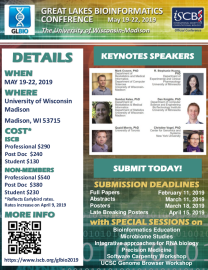
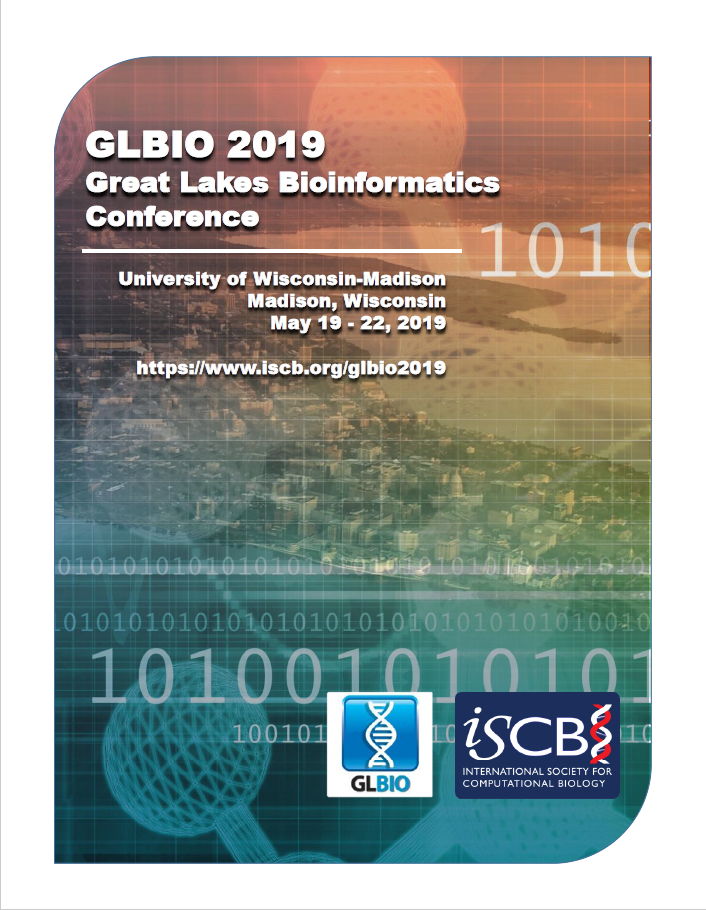
https://qubeshub.org/community/groups/glbioedu
The GLBIO 2019 Special Session on Bioinformatics Education seeks to create a platform for presentation and discussion on the topic of bioinformatics education broadly defined. The session will mix invited talks from leaders in bioinformatics education with contributed talks and posters from the community. The intention is to provide a broad representation of perspectives, goals, and topics engaging the bioinformatics education community. Topics of interest include but are not limited to:
Case studies in bioinformatics education
The session will conclude with a Panel Discussion and Community Forum organized around the theme of identifying the aims for Bioinformatics Education community over the next five years.
Development and Application of Tools for Microbiome Studies
https://microbiome.wisc.edu/events/glbio2019/
Microbiome research is a rapidly growing area of science. Over the last decade, the number of microbiome sequencing studies has expanded enormously, exploring the intricate communities of microbes within soil, water, the built environment, and the human body, amongst others. There is a need to ensure that adequate expertise and infrastructure is in place to meet the challenge of analyzing the data generated as well as a robust and reliable framework for interpreting the data. This session will cover (1) different computational and statistical methods for analyzing microbiome data sets, and (2) investigations of microbiomes uncovering new insight into functions and dynamics.
RNA Sequence to Structure: Systems Biology of Post-TRranscriptional Gene Regulation
http://www.iupui.edu/~jangalab/rss_glbio19/
Post-transcriptional processes play a key role in eukaryotic gene regulation, yet it is not well understood how such processes contribute to the level of functional RNAs within the cell. Such regulation is orchestrated through a variety of mechanisms acting on all aspects of RNA metabolism, including pre-mRNA splicing, stability, polyadenylation, localization, editing, modification, and translation. The diversity of these mechanisms as well as the the increase in RNA-related high-throughput sequencing approaches highlight the need for research into new computational tools addressing post-transcriptional gene regulation.
This session focuses on research findings and methods related to the sequence and structure of RNA as well as its post-transcriptional gene regulation. These include but are not limited to the analysis of transcriptomics and protein-RNA interaction datasets, novel methods for interpretation of single-cell transcriptomes and approaches for RNA structure prediction. The session comprises of invited and selected talks, as well as a workshop on analyses of RNA splicing from high-throughput transcriptome-wide sequencing, and identification of protein/RNA binding sites from CLIP-seq data. The audience is expected to have a basic understanding and experience with computational biology, but not to be experts on RNA biology or the current computational and experimental approaches used in RNA research.
http://glbio19-precisionmedicine.strikingly.com/
Advances in computing have led to a data-driven revolution in biology and promise to guide progress in precision medicine. This session will explore the spectrum of challenges and opportunities in precision medicine, including genomics, electronic health record analytics, and drug discovery. Confirmed speakers apply systems approaches to disease, biomarker, and other complex trait prediction by building computational models that leverage and integrate similarity in genetic, transcriptomic and other omics-level data. The intended audience for this session includes those interested in integrative genomics, statistical modeling, machine learning, and human population genetics applications in medicine. Session organizers: Heather Wheeler (This email address is being protected from spambots. You need JavaScript enabled to view it.), Aritro Nath (This email address is being protected from spambots. You need JavaScript enabled to view it.), and Qiongshi Lu (This email address is being protected from spambots. You need JavaScript enabled to view it.).
https://users.soe.ucsc.edu/~kuhn/workshops/glbio2019/
As the flood of data from high-throughput sequencing threatens to overwhelm scientists with data generated within individual labs and distributed on the web, visualization becomes even more important. The UCSC Genome Browser has developed tools that assist in understanding the import of data and provides a platform to view data from multiple sources together. The endpoint of a data pipeline need not be statistical or tabular. A potent visualization tool such as the Browser can add an important dimension to data analysis.
This UCSC Genome Browser workshop will offer a tour through recent data releases and new features. New data include a pre-computed CRISPR guides track on human, mouse and other genome assemblies, a mapping of transcript-specific GTEx expression data, a Gene Interactions track which collects data from multiple curated databases and from data-mining of the literature, and gnomAD. Recently added features include multi-region mode, which allows for display of exons only or of any regions specified by the user, whether contiguous in the genome or not and Track Collections, which allows co-configuration of multiple tracks and new data formats for loading your data (interation and barChart).
https://uw-madison-datascience.github.io/2019-05-19-glbio-docker/
This workshop aims to be the next step in reproducibility for computational biologists and will focus on using and developing software containers. We will review best practices for practicing reproducible research and teach participants how to use Docker, a popular software for containerization (which can also be used by Singularity, another commonly used containerization platform). Using containers can help overcome the many interoperability and dependency issues often encountered when distributing or installing software. Docker images used conjunction with continuous integration is considered to be a possible solution for the reproducibility crisis plaguing research at large. Similar to a Carpentries workshop, a majority of the proposed workshop will be hands-on live-coding. Workshop attendees are expected to have familiarity with the Unix shell and git/github, bring their own laptops, and follow along with the training.
https://dimension-reduction.github.io/
 Mark Craven, PhD
Mark Craven, PhD
University of Wisconsin at Madison
Mark Craven is a professor in the Department of Biostatistics and Medical Informatics at the University of Wisconsin, and an affiliate faculty member in the Department of Computer Sciences. He is the Director of the Center for Predictive Computational Phenotyping, one of the NIH Centers of Excellence for Big Data Computing. He is also the Director of the NIH/NLM-funded Computation and Informatics in Biology and Medicine (CIBM) Training Program, and a member of the Institute for Clinical and Translational Research, the Carbone Cancer Center, and the Genome Center of Wisconsin. The focus of his research program is on developing and applying machine-learning methods to infer models of, and reason about, networks of interactions among genes, proteins, clinical and environmental factors, and phenotypes of interest.
 R. Stephanie Huang, PhD
R. Stephanie Huang, PhD
University of Minnesota
Dr. Huang is an Associate Professor at the Department of Experimental and Clinical Pharmacology, University of Minnesota. She is also an Associate Director for the Institute of Personalized Medicine | Pharmacogenomics U of M Alliance (PUMA-IPM) and a member of the Masonic Cancer Center at the University of Minnesota. She is a member of American Association for Cancer Research (AACR), American Society of Human Genetics (ASHG), and American Society of Clinical Pharmacology and Therapeutics (ASCPT). To date, she has published over 70 original research papers many of which are in high caliber journals, e.g., Nature, Nature Medicine, PNAS, Blood, Cancer Research, Genome Biology and American Journal of Human Genetics. Dr. Huang is a board certified clinical pharmacologist with extensive training in genetics, molecular and cell biology, clinical trials and high throughput data analysis.
The Huang laboratory’s main research focus is translational pharmacogenomics with particular interest in the pharmacogenomics of anti-cancer agents. By systematically evaluating human genome and its relationships to drug response and toxicity, their goal is to develop clinically useful models that predict risks for adverse drug reactions and non-response prior to administration of chemotherapy. With her broad training background, Dr. Huang assembles and leads a multi-disciplinary team that consists of computational biologist, geneticist, pharmacist, physician, molecular biologist and biostatistician to tackle a series of serious problems in cancer research. These include the lack of mechanistic understanding of genomic regulation of cancer phenotypes; the lack of reproducible predictive biomarkers for cancer therapeutic agents; and the lack of effective treatment for many hard to treat cancers.
More information about the Huang lab can be found online at http://huang-lab.umn.edu/
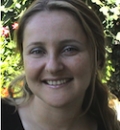 Sunduz Keles, PhD
Sunduz Keles, PhD
University of Wisconsin at Madison
Dr. Keles is interested in statistical and computational genomics. Their research concerns developing and applying statistical methods for problems that arise in genome biology.
 Dan Knights, PhD
Dan Knights, PhD
University of Minnesota
Dr. Dan Knights is an Associate Professor in the Department of Computer Science and Engineering and the BioTechnology Institute at the University of Minnesota. He obtained his Ph.D. in Computer Science under Rob Knight and Mike Mozer at the University of Colorado at Boulder, with a certificate in Interdisciplinary Quantitative Biology from the University of Colorado's BioFrontiers Institute. He came to the University of Minnesota from a post-doctoral fellowship in the lab of Ramnik Xavier at Harvard Medical School and the Broad Institute of MIT and Harvard.
 Quaid Morris, PhD
Quaid Morris, PhD
University of Toronto
Dr. Quaid Morris is a professor at the Donnelly Centre for Cellular and Biomolecular Research (University of Toronto) where he also holds cross-appointments in Molecular Genetics and Computer Science. Dr Morris is also a faculty member of the Vector Institute for Artificial Intelligence.
The Morris Lab uses machine learning and artificial intelligence to do biomedical research, focusing on cancer evolution, post-transcriptional regulation, and gene function prediction. His work also spans biological image analysis and electronic health record analysis.
Since establishing his lab in 2005, Dr. Morris has published more than 100 peer-reviewed papers in journals and high-impact computer science conferences. His work has gained nearly 15,000 citations. He is an expert in machine learning and its application to genomics data.
 Christine Vogel, PhD
Christine Vogel, PhD
New York University
Dr. Christine Vogel is a trained biochemist with a Master's in Mathematical Biology and a PhD in Computational Structural Biology obtained from the University of Cambridge, with Drs. Cyrus Chothia and Sarah Teichmann. After post-doctoral work with Dr. Edward Marcotte (Univ. of Texas at Austin), she joined New York University as faculty in 2011. Her lab uses a combination of proteomics, transcriptomics, computational, and targeted approaches to investigate the regulation of protein expression under stress. Her work was recognized by the US Human Proteomics Organization with the 2017 Robert J. Cotter New Investigator Award.
ISCB Members enjoy discounts on conference registration (up to $150), journal subscriptions, book (25% off), and job center postings (free).
Connecting, Collaborating, Training, the Lifeblood of Science. ISCB, the professional society for computational biology!
Giving never felt so good! Considering donating today.